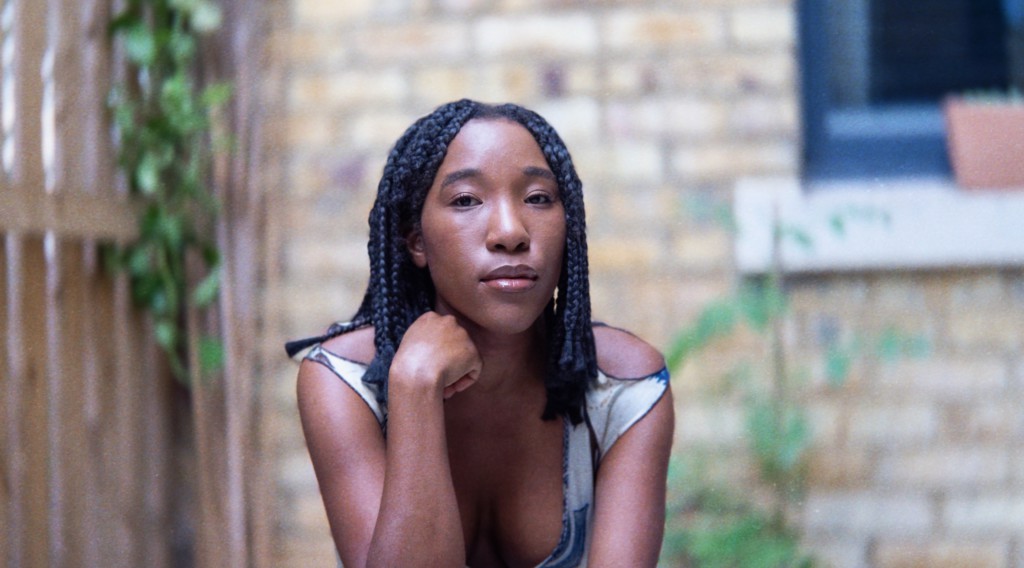Welcome to our Forward Prizes 2023 ‘How I Did It’ series. This year we asked the poets shortlisted for the Forward Prize for Best First Collection to write about the inspiration behind the poems in their collection. Here’s Kandace Siobhan Walker on what inspired her to write Cowboy.
When I was editing Cowboy, I was struggling with knowing what to rearrange and what to cut. Originally, I had written a poem, called ‘Niagara’, about waterfalls and autism. It was near the end of the book and had neither line breaks nor stanzas. It was an align-justify jumble sale of pop culture references (Looney Tunes, Solange’s self-titled, Star Trek) and academic theory (the social model of disability and critiques of Western psychiatry). Weirdly, this poem never explicitly mentioned daredevils even though the first sentence was, ‘Walking a tightrope over the falls.’
Years earlier I had visited Niagara Falls. This was where, in a rock tunnel behind the big Canadian waterfall, I had initially encountered the poem’s central image, as plaques detailing the history of daredevils in the area. When I wrote ‘Niagara’, I felt, at first, that the draft was perfect. Later, I decided that the poem was too direct in its language and too self-conscious in its tone. The speaker was in conversation with too many interlocutors, including you, the reader. I was very attached to a Bugs Bunny cameo that I knew wasn’t at all necessary. The brushstrokes had too wide a sweep. I left the poem in a big Google doc of works-in-progress.
Eventually, I tried to figure out what the heart of the poem was, an exercise I learned in a fiction workshop with Jacinda Townsend. I kept the waterfalls and researched daredevils, and I rebuilt everything else. I was learning that sometimes you must clear the page. Normally, I hoard. Over a year since I shelved that first draft, I wrote a second into a blank document, with the earlier version as a kind of guardrail. This was ‘Niagara Barrel Blue’, now with line breaks but no stanzas.
Somewhere on the internet, I read an interview with Annie Edson Taylor, a destitute schoolteacher who became the first person to survive a barrel ride over the falls in 1901. Elsewhere in my daredevil research, I noticed that the stunts and their performers, especially the tragic and the gory, were described with the unkind and dehumanising voyeurism of turn-of-the-century freak shows. But in Taylor’s descriptions of her experience, I found the vocabulary and specificity for which I had been searching.
My speaker went inside the barrel. It wasn’t necessary to explain why, or how, I realised; the speaker was born inside the barrel. I abandoned chronology. Instead, I focused on action and feeling, which is how the opening line became: ‘Fell through the mist of a waterfall prismatic / the way a baby plunges through a christening bowl’. Embracing this grammar of disorientation meant that I was able to abdicate the responsibility to make sense. This refusal of logic was where my experiment in autistic poetics took shape.
What survived across the poem’s multiple iterations — besides the setting and cannibalised stuntman terminology — was only a three-word phrase: ‘miles of ocean.’ Everything else, I realised, was hindering the poem, because that first draft was about explaining myself. The poem is about wishing to understand and be understood, but it can’t grant the wish. All this poem needed to do was tell somebody else what it felt like when I was a daredevil, and my barrel started ‘floating out to sea’.
Niagara Barrel Blue
Fell through the mist of a waterfall prismatic,
the way a baby plunges through the christening bow,
landing in the river where doctors with eager crowbars
unsealed my head and let out all my crazy seawater.
I’d asked to be sent down in a barrel, had wanted
the medical to pry me away from living
with my eye pressed to the bunghole.
I was diagnosed as being a real desperado,
performing the high wire of
facial expressions between skyscrapers,
the flaming tricycle of emotional dysregulation,
even the disfluent choreography of speech,
and hiding, where I could, the drowning
magician of my affect, the crushed plastic
casket of electrical humming. I ran from
the frank rock face of unscripted conversations,
kissed the airbag of tongueless
wish-making. Before, I was as scattered and blue
as distance, now psychiatry wanted to fill me
with the clear, compliant beauty of glass fixed
to tin salt and silver and fool’s gold.
But the reflection held nothing
beyond an idea of knowledge.
Kneeling at the root of light, in the bore of myself,
my personality’s springtime was as alien as
the evening I walked into emergency
with a dream of the valley beating in my wrists.
The daredevil keeps rehearsing a fall
to meet the sky, until she can swim the mystery
of both its real colour and its twin shade:
miles of ocean, lips moving without sound.
Find out more and purchase Kandace Siobhan Walker’s debut collection Cowboy here.

Kandace Siobhan Walker is a writer and artist of Jamaican-Canadian, Saltwater Geechee and Welsh heritage. She is the author of two books of poetry, Kaleido (Bad Betty Press, 2022) and Cowboy (CHEERIO, 2023). She was the recipient of a Wales Venice 10 Commission from Artes Mundi in 2022, the winner of The White Review Poet’s Prize and a recipient of an Eric Gregory Award in 2021, and the winner of the Guardian 4th Estate BAME Short Story Prize in 2019. Her 2018 short film ‘Last Days of the Girl’s Kingdom’, produced in collaboration with the ICA and DAZED, aired on Channel 4’s Random Acts. She lives in London.
Add your Reply
You must be logged in to post a comment.